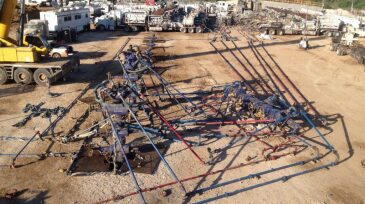digital transformation
-
Moving away from siloed organization to the co-creation of an IT/business strategy is an important progression in the journey of digital transformation.
-
As part of the deal, Pertamina is moving all of its petrotechnical applications to the iEnergy cloud service, which is run by Halliburton arm Landmark.
-
Producers and investors continue to reward small companies with big solutions that lean on new software and hardware to lift the bottom line of one the world’s few trillion-dollar industries.
-
The digital transformation is a risky proposition for oil and gas companies adapting to a rapidly changing business environment, but a failure to adapt could spell trouble for the industry.
-
The company is relying on DevOps and agile to hit a bold growth goal by 2025: doubling profits without changing prices.
-
To launch in early 2020, the facility will bring together up to 300 developers, data scientists, architects, and other specialists.
-
Digital transformation supported by data analytics and artificial intelligence can be the differentiator that allows the upstream industry to persist in the next 100 years, providing a unique foundation for innovation to enhance general public awareness and life quality.
-
Technology startups are breathing new life into an old industry with advanced software and emerging chemistry solutions. Learn about some of the names earning the most attention from the industry's venture capital groups.
-
A bearish future prospect and the digital transformation of the industry are forcing oilfield service companies to restructure their service delivery accountability and improve the interfaces between software and traditional segments.
-
Firms such as Netflix have had a solid digital transformation strategy. Now, industrial companies, including in the oil and gas sector, are on a similar, if less dramatic, trajectory.










